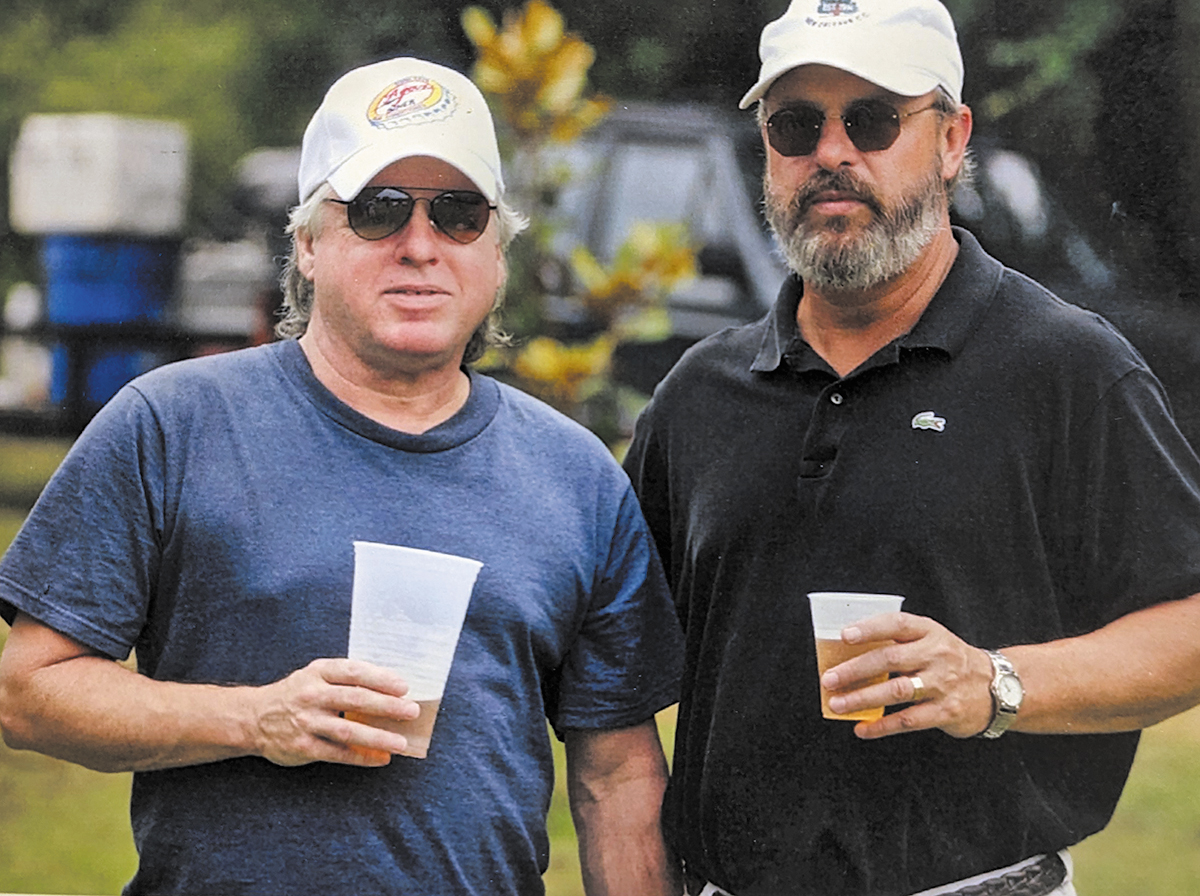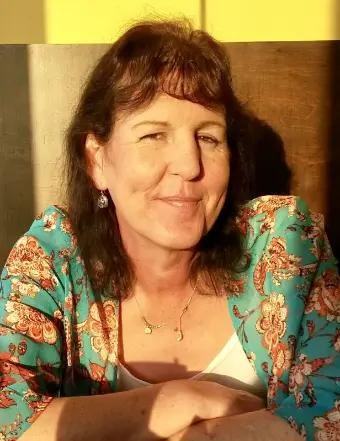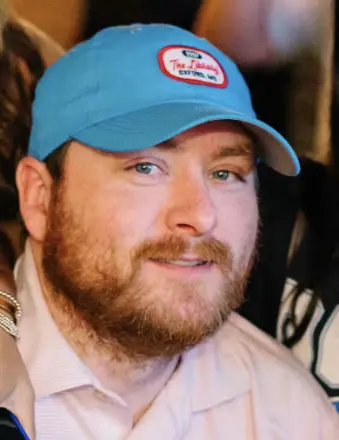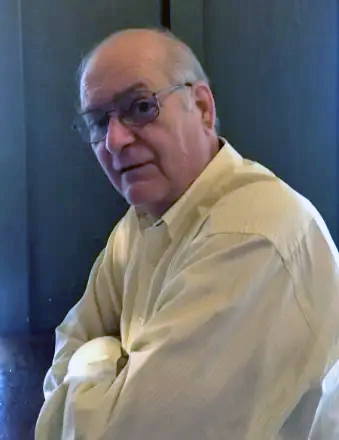
Back in the late ‘80s when I lived across the street from Saint Peter’s Cemetery, I used to walk to campus every Friday afternoon. My friend Jim Weems’ studio was in the Old Chem building where he was working on his thesis paintings for his Master of Fine Arts degree. He’d be finishing up for the week when I got there. His abstract paintings possessed a tactile quality—reminding me of a relief map—the way he built up the oil paint in dense patterns on the canvasses. I’m not much of an abstract-expressionist guy, but I really liked Jim’s work.
When he was done we’d walk to The Gin for a couple of beers. In those days Jim walked everywhere around town, as did I. Jim and his wife, Debra, owned one car at the time which she drove to work and back. My truck was parked in Fairbanks, Alaska, where I lived and worked as a land surveyor spring and summers, spending fall and winter in Oxford.
The Gin was a good afternoon bar back then. Quiet, spacious, mostly empty (after the bustling lunch hour). Always seated at the bar each and every afternoon was a balding, middle-aged individual, first name Doxey, retired from his job at the Williams Library on campus. To say he was a character would be a vast understatement. Doxey’s outlandish laugh sounded like a braying mule. He used to brag he hadn’t been beyond the Oxford city limits in 28 years. I think it is safe to say, sitting in The Gin barroom was his entire life. Doxey and Jim got along famously. When Doxey died, Jim attended his funeral.
Jim told me he walked into The Gin one night and spotted Ole Miss head football coach Billy “Dog” Brewer. He said Coach Brewer was standing by himself, off to the side, his back against a wall, drink in hand, the bill of his cap pulled down low over his eyes.
“What’s goin’ on, Coach?” said Jim
“I’m bird-doggin’,” said Billy Brewer, in a conspiratorial tone.
They don’t make ‘em like Coach Brewer anymore.
After a beer or three at the gin, Jim and I would walk up the hill to hit the Happy Hour at Syd and Harry’s (now City Grocery). Syd and Harry’s had a good Friday Happy Hour crowd in those days. All kinds of different people, different ages. College professors, ne’er-do-wells, writers, even some regular folks. Most everybody knew everybody else. Oxford’s mayor at the time would roll in around five o’clock. Domestic beer was a dollar. Imports a buck-and-a-quarter. Our informal little group within the group consisted of Jim, myself, Johnny Hayles, Wil Collins, L.W. Thomas, others. All were welcome.
We continued with this tradition when the bar transitioned in 1992 to City Grocery, when Randy Yates (current owner of Ajax Diner) came on board as the #1 bartender. By then Larry Brown had thrown in with us.
Later on, after I had moved to Biloxi (where Jim dropped in for a visit one time), City Grocery’s owner, John Currence, hired Jim to manage the downstairs restaurant. Which Jim did with considerable aplomb, for many years. I used to kid Jim, saying he was the only person I ever knew who had drank himself into a job. Being a people person, it was a perfect fit for Jim. Plus, he loved dressing up for work.Whenever I would run into someone who worked at City Grocery, usually a waiter or waitress, I would mention Jim. To a person they told me they loved working under him.
Jim was born and reared in Holmes County, Mississippi, (as was his wife, Debra) where he played on the Holmes County Community College football team. (A customer at the bar one afternoon, who was visiting Oxford, had played football with Jim. He said Jim was a hard man to tackle when running the ball because he had such a low center of gravity.) Jim grew up on his dad’s cattle farm near Tchula (Tchula being the Choctaw word for fox). He told me his father had served as an infantryman in Europe for five long years during World War II. Jim said his father was so incensed at having had five years stolen from his young life that when he finally returned stateside he vowed he would never work for, or take orders from, anybody again. And he never did. He was a completely entrepreneurial individual. He never held a conventional job of any kind.
Jim and I had a conversation about our fathers once. Both of whom persisted in being parental toward us long after we had come of age. My father, for example, when he was still alive, would phone me here in Oxford and ask if I was changing the oil in my truck, etc. Jim said his father talked to him the same way, even after he was married and had children. Jim told me he was visiting his parents and riding with his father in his father’s pick-up truck one day. He said his father was lecturing him as if he was an adolescent. Jim had had enough. He erupted. He told his father in a loud voice to stop talking to him that way, that he was a grown man. He said his father was stunned by the outburst. Jim had never been anything but deferential to his father. His father looked at him as if seeing Jim for the very first time. He never talked to Jim that way again.
Jim told me once that the people he liked the most were those who made him laugh. He loved a good laugh. He had mastered the fine art of finding humor in the absurdities of life. He loved good conversation. He loved New Orleans. He loved knocking back a few Happy Hour Heinekens after a day’s work. He loved a good cigar. He loved his family most of all.
We’ve lost a lot of my favorite Oxford people in recent years. Larry Brown, L.W. Thomas, Susan and Barry Hannah, Ron Bourne, Jere Hoar. . . And now, Jim.
Years ago I wrote what amounted to a eulogy for one of my best friends, a Vietnam veteran, who committed suicide after returning home from 13 months of combat duty. The appreciation appeared in the Potomac Review. In describing the funeral service, I wrote: As the preacher preached, it occurred to me. . . that the living were crying not so much for the dead, as we were for ourselves, left that much more alone to make our way toward our own end in this world.
Rest in peace, Jim.



